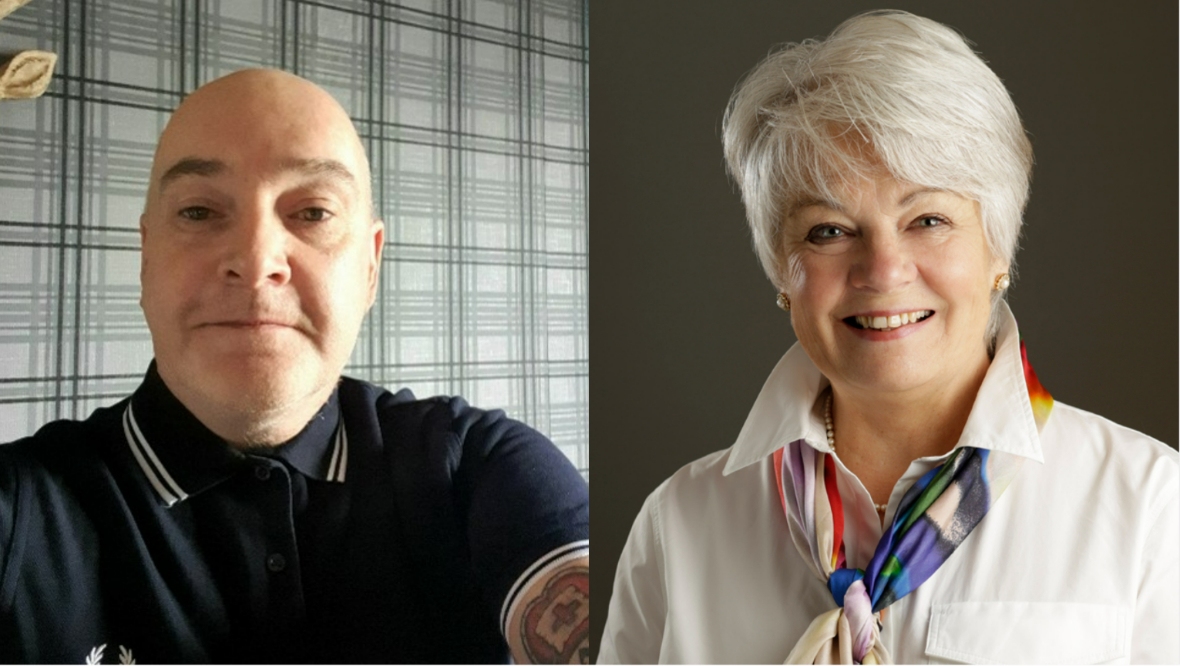A man with epilepsy has told how “every day is a lottery” since the condition forced him to give up his job as a support worker.
Dave McTernan, from Edinburgh, was first diagnosed 38 years ago when he was 17 but it wasn’t until the number of seizures he suffered from increased in 2012 that he eventually had to stop working.
The 55-year-old has told his story to raise awareness of the issue, coinciding with a new report highlighting the crucial role of epilepsy specialist nurses (ESNs) in Scotland.
Charities are now calling for more nurses to deliver support in every part of the country.
Mr McTernan was shocked at first with the diagnosis as he knew very little about the condition.
“After various admin jobs, I ended up in hospitality and worked my way up to bar manager,” he said.
“During these years seizures would still appear, although mostly nocturnal. I had learned about my main triggers which are alcohol, stress, and tiredness, and adapted my life to manage these.
“I eventually left hospitality and pursued my new dream career as a support worker. I worked with adults that had various needs and loved my career.
“I made it to senior support worker until approximately ten years ago my seizures increased in quantity, and I began to have them most days.
“I eventually had to stop working altogether and it seemed that epilepsy yet again had changed my life.
“My epilepsy has proven to be med resistant – and every day is a lottery.
“I get no warning when a seizure is coming, and this causes a huge amount of anxiety. I don’t often go out alone and when I go it’s very local to home; I can’t use a bath for fear of drowning; and can no longer cook on a conventional cooker.
“There are some days that I feel that epilepsy is winning, however I grab the good days and have a fulfilled and happy life.”
He added: “In my experience, ESNs are an essential part of our epilepsy treatment.
“My ESN has literally been a lifesaver and not only was able to give me great information about epilepsy and in particular my own seizures, and has provided an all-round care package.
“Through my ESN I have been given access to mental health services through a referral to a neuropsychologist and had my home made safer due to an alarm being fitted that gives me care from a call service.
“Knowing that there is someone only a phone call away who understands and has the knowledge and skills to help is comforting, and helps to remove a lot of anxiety around living with this condition.”
Epilepsy Consortium Scotland, the Scottish national umbrella body, has warned of significant workloads facing specialist nurses.
The new report explores the experiences of patients and nurses, with individuals living with epilepsy describing the support as a ‘lifeline’.
Several patients highlighted how ESNs have a positive impact on their mental health and help to reduce anxiety, particularly around potential changes to medication.
Yet nurses noted that their current workloads are “potentially unmanageable” and they “do not feel like they are constantly in control of their work”.
Participants described large caseloads of up to 3,500 patients for one or two nurses, and highlighted a five-month waiting list for clinics.
The report also warns that people living in rural areas may face additional barriers to accessing support.
ESNs are qualified nurses who also have training, experience and expertise in the management of epilepsy.
In light of the findings, Epilepsy Consortium Scotland has called for an increase of ESNs across Scotland to ensure everyone can access support in a timely manner.
Leslie Young, chief executive of Epilepsy Scotland and founder of Epilepsy Consortium Scotland said:
“Epilepsy Specialist Nurses provide a lifeline service for people with epilepsy, and this report highlights the incredible contribution they make.
“Some participants described their ESN as providing a bridge between themselves and their neurologist.
“However, they also reported difficulty initially accessing ESN support, and while they expressed awareness of how stretched current services are, they noted how crucial this is to their care.
“Meanwhile, nurses said their current workloads feel potentially unmanageable and they regularly work beyond their contracted hours.
“They also said this was already an issue prior to the pandemic, and has continued to increase at pace over the past two years.
“ESNs play a vital role, and we would like to see numbers increased so people with epilepsy in every part of Scotland can access their support.”
Epilepsy affects one in 97 people – which represents around 55,000 people in Scotland.
One Epilepsy Specialist Nurse working in NHS Scotland said: “It’s alarming the affect Covid has had on our patients’ mental health and their ability to access primary care services.
“Clinical nurse specialists have attempted to prioritise their patients’ safety under extremely demanding circumstances.
“We have striven to maintain contact and embraced new ways of practice to accommodate this – perhaps to the detriment of our own workload, which continues to increase, coupled with supporting the staff shortages in the hospitals.
“Our services are continually stretched beyond our control. This has been raised and should be addressed.”
Follow STV News on WhatsApp
Scan the QR code on your mobile device for all the latest news from around the country


 Epilepsy Consortium Scotland
Epilepsy Consortium Scotland
























